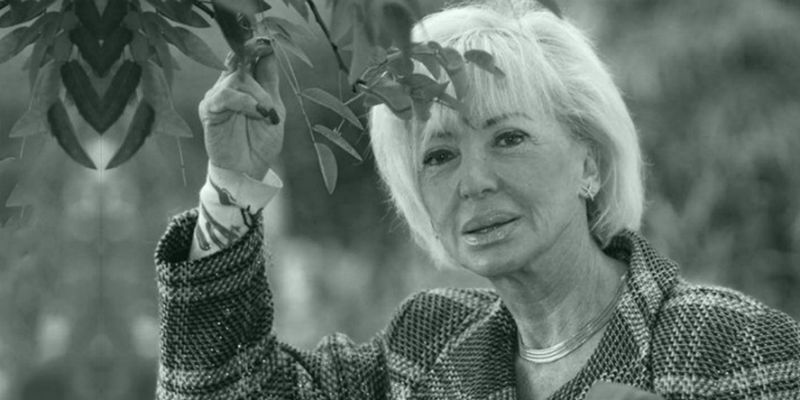It sounded like something out of a movie. The publication of our book, A Deal with the Devil—about our years-long investigation into an international scam that targeted the elderly with letters from a purported French psychic named Maria Duval, a scam that ultimately brought in hundreds of millions of dollars—was rapidly approaching when we heard from Maria Duval’s son that something shocking had happened. The U.S. government had sent an investigator and two attorneys all the way to Maria’s tiny town in the south of France.
Local police joined the same USPIS investigator who first discovered this scam, at the same foreboding gate that we became so familiar with two years earlier. As Antoine described the scene, police entered Maria’s home with a money-sniffing dog, which roamed her large property and garden. They pulled out drawers, seized her computer, took piles of documents and pulled bank account records for both Maria and her family. US officials had once written that they didn’t even know if Maria was a real person. Now the key investigator was at her house. Antoine claimed the raid was all about recovering proceeds from the scam, but he said they didn’t find a cent. During an hours-long Skype conversation, he insisted that his mother had only a few thousand Euro left in her dwindling accounts. He also finally revealed the extent of her sickness, saying that she had been battling the effects of Alzheimer’s disease for several years.
With this mission to France, the U.S. government had been hoping to get answers from Maria. Instead, according to Antoine, Maria couldn’t remember her name when asked by police, and was deemed incompetent by investigators based on a physician’s assessment of her condition. She was therefore unable to sit for an interview. So Antoine went instead, sitting in a room in the local police station for six hours talking to the postal inspector and two attorneys from the Department of Justice.
They asked him a lot about the money his mother made. They were also very interested in the businessmen. Antoine said three names kept popping up: Jean Claude Reuille, the retiree holed away in Thailand; Lucio Parrella, the Swiss man who had been one of the most recent contacts we could find for the scam but claimed his only involvement was to help sell her books; and Andrea Egger, the mysterious attorney in Monaco. Up until this point, we had never heard the US government mention these names. Their public filings to date had focused on lower rungs of the scheme, and we hadn’t been sure whether any investigation was ongoing after the scam had been shut down in the US. If what Antoine was telling us was true, it meant that the US government was finally investigating the people we believed were central to this scam. Antoine said that when asked if he would be willing to testify in any legal proceeding that may take place in the US, he said yes.
At the end of our conversation, Antoine told us something else. Perhaps because of how angry he was about the government’s focus on his mother instead of the businessmen, he said he would finally let us see his mother. At first he offered to set up a Skype call where we could simply wave hello and goodbye, but when we asked if we could return to France to meet her in person instead, he agreed.
Three weeks later, we boarded a plane back to France in a daze. We landed at the same airport in Nice, this time careful to take the toll roads as we drove to the very same hotel. As the hours to our meeting ticked down, we still wouldn’t let ourselves believe that this was actually going to happen. It was a Saturday in early May when we rang the same doorbell we had cursed so many times before. Once the gate opened, we drove down the long, narrow driveway and took in our first glimpse of Maria’s home, which was surrounded by overgrown grass littered with statues of naked Greek gods, monkeys and elephants. We had made it to the other side.
***
The day unfolded almost like a dream. The night before, we had made a list of all the ways this meeting could go horribly wrong—even ending in our untimely demise. Instead Antoine, his wife and two of his daughters greeted us with smiles and led us toward Maria’s house. At the top of the stairs stood Maria, the woman who had been our sole obsession for years. She wore blue crocs, cartoon-covered socks, faded leopard print leggings, a chunky black sweater, and a red necklace. She looked at us with a blank stare as we took turns shaking her hand.
It was clearly the same woman, but she was a shell of herself. Her eyes were confused, her large lips looked almost deflated, her lipstick was drawn outside the lines, and the defensive, confident woman we had seen in the past was nowhere to be found.
We followed her and Antoine further into the house, starting in her personal office, a small room filled with shelves upon shelves of vinyl three-ring binders, paintings of wizards and crystals, photos of herself, and endless trinkets that appeared to be from all around the world. From there, a hallway filled with even more binders led us into the room we had been waiting for. Antoine described it as the office where she did her consultations, and we immediately recognized it from the YouTube videos, with the Virgin Mary statues, crystal ball and large wooden desk. While we weren’t able to tour her entire house, the rooms we did see were in disrepair and seemed to be relics from a past life of fame and fortune. As we flipped through stacks of binders full of newspaper and magazine clippings, her face was everywhere. In horoscope columns, on the pages of French Vogue, on clippings about TV and radio shows throughout the 70s and 80s. We knew she had been a well-known local psychic but hadn’t ever realized the extent of her fame. Antoine told us that his mother had been paid so well for these media appearances and writings that she had been a very wealthy woman before ever getting involved with the businessmen. He said that everything, including the money, went downhill after she sold her name. We had been skeptical that a psychic could become such a highly-paid celebrity, but now it seemed plausible. Maria watched us look through all of these articles without saying anything.
We had been dreaming of this meeting for years and had a list of tough questions we were determined to ask her, hoping Antoine was exaggerating his mother’s condition as a convenient excuse to avoid US authorities. But as we sat across from her in her office, she was happy to be on camera but was unable to even tell us the day or answer basic questions about her life and psychic abilities—repeating herself and struggling to find or complete words. It was clear that the woman with the answers to all of our questions was gone.
She soon left to go upstairs to rest, and we sat with Antoine and his daughter Solène to ask them the questions we couldn’t ask Maria. But her family only knew so much, and still claimed to be unaware of the full extent of his mother’s business dealings, saying they wished they had known what she had gotten herself into sooner so that they could have found out more. Antoine again told us he didn’t know how much money she had ultimately made from selling her name and claimed that the royalties had stopped coming. He remained adamant that she had received only a fraction of what others had. Antoine would of course have an incentive to tell investigators, and us, there was nothing to find. But if she truly had nothing, how was she still living in such a large and expensive house that would surely require pricey upkeep? Antoine said she had purchased the house before getting involved with the letters, and that he and his family had been paying the bills.
He also claimed, yet again, that his mother had nothing to hide. But when we asked him if Maria was really in Rome the last time we had come to speak with her, two years ago, he and his daughter looked at each other uncomfortably and laughed. The voice from the other side of the gate who told us Maria was in Rome had not been that of a housekeeper. The voice was Maria’s. She had been the woman behind the gate all along, and she had created the elaborate lie to avoid us.
If Maria truly hadn’t had anything to hide, why wouldn’t she have talked to us? In her right mind, she wanted nothing to do with us. Now she wandered about her property like a lost child…If Maria truly hadn’t had anything to hide, why wouldn’t she have talked to us? In her right mind, she wanted nothing to do with us. Now she wandered about her property like a lost child, continuing to come into the room to look at us and shake our hands throughout our visit. The Maria sitting before us had become a scammer’s perfect target, a perfect victim to place on all those suckers lists that the scam in her own name had relied on.
To hear Antoine tell it, Maria had been like her victims long before she suffered from the debilitating effects of old age. And he acknowledged she was never completely innocent. She had fallen hook, line and sinker for the unbelievable promises of wealth and fame that were made to her by Swiss businessmen. Businessmen who dazzled her with their expensive suits, luxury watches and pricey cars, which Antoine believes convinced her to sign on the dotted line without fully understanding the contract she was signing or what she was giving away.
She had been drawn to anything that shines, and she had put her trust in dangerous places.
We placed our laptop on the desk in front of Antoine and played an audio recording of Chrissie, who spoke straight to Maria and blamed her for preying on her mother, a confused, lonely, elderly woman. In that moment, even Antoine couldn’t deny the pain his mother had caused by making that deal with the devil—whether she intended to or not.
***
We had been given the opportunity to sit right in front of this woman, to stare into her vacant eyes. But unlike the movies, we didn’t get to choose our ending. We now knew that the woman on the letters would never be able to share her story with the world. And even if we had heard her side, it would have been just that: her story, her claims, all colored by her own perception. It would have done nothing more than satisfy our own curiosity. Say Maria felt some level of remorse or wished she could have gotten out of those contracts she had signed so long ago. None of that mattered now. She couldn’t turn back time. No one can ever recover the hundreds of millions of dollars that have been taken from so many victims. Or the billions of dollars taken from so many others by all kinds of mail frauds. Sure, our obsession had started with Maria, but we always knew that this scam was part of a much bigger story.
Across the country, and the globe, we encountered a huge number of individuals willing to prey on the elderly. In many ways, the Maria Duval scam was a perfect case study. It revealed just how many different layers could make up a single fraud, how profitable this kind of scheme could be, how the businesspeople justify their actions, and how victims are so strategically and mercilessly targeted. More than anything else, it showed how a scam could become practically unstoppable.
Maria’s letters may be coming to an end. But there are countless similar scams that are still going strong and many others just beginning. Each has its own story. Its own cast of characters. None, however, have Maria, the smiling woman in the photo who made one of the longest-running scams in history all possible.
This will always be her legacy.
__________________________________
Excerpted and adapted from A Deal with the Devil: The Dark and Twisted True Story of One of the Biggest Cons in History, by Blake Ellis and Melanie Hicken. Copyright © 2018, Blake Ellis and Melanie Hicken. Reprinted with permission of Atria Books. All rights reserved.






















